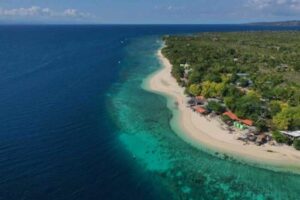THE TOURISM INDUSTRY is expected to attract increased investments once the amendments to the Corporate Recovery and Tax Incentives for Enterprises (CREATE) Act are passed, an industry regulator said.
On the sidelines of the Philippine Tourism and Hotel Investment Summit on Friday, Tourism Infrastructure and Enterprise Zone Authority (TIEZA) Chief Operating Officer Mark T. Lapid said investors “will benefit because that will level the playing field. Meaning, what you can get in the Philippine Economic Zone Authority (PEZA), you can also get in the Board of Investments (BoI) and in TIEZA,” Mr. Lapid said in a mix of English and Filipino.
“But the only thing that you cannot get from the other investment promotion agencies and you can get from us is the infrastructure support,” he said. “So yes, this will make the sector more attractive to investors.”
In March, the House of Representatives approved on final reading the CREATE to Maximize Opportunities for Reinvigorating the Economy (CREATE MORE) bill, which seeks to cut the corporate income tax to 20% from 25% The bill has been passed on to the Senate.
During the summit, the Philippine Hotel Owners Association, Inc. (PHOA) and Leechiu Property Consultants released the Philippine Hotel Investment Outlook Survey, which in part laid down government support recommendations that it hopes will attract more investment.
In particular, PHOA and Leechiu called for additional tax incentives and the extension of current incentives to help offset setbacks during the pandemic and help proponents recover at least half of their construction and land acquisition costs.
Francis Nathaniel C. Gotianun, chairman of the organizing committee of the summit, said: “We are trying to get a reinvestment allowance … since hotels require a lot of capital investment on an ongoing basis, we were hoping that we could get a 50% rebate on our renovation costs because we continuously renovate hotels,” Mr. Gotianun told BusinessWorld.
Another recommendation in the report is increased incentives for sustainability initiatives, which PHOA and Leechiu said will help “inspire both hospitality establishments and the public to integrate environmental stewardship into their operations.”
According to Mr. Gotianun, the government can help the industry by providing funding access for sustainability initiatives.
“It can be in the form of a subsidy or reimbursement for investment in sustainability. It would be good if there was some sort of financing facility, rebate, or tax break as a result of the investment,” he said.
“The idea is that if we can get some tax shielding as a result of that investment, it will encourage people to invest again. Obviously, the more government support we can get, the more we’d be happy to invest,” he added.
Meanwhile, Mr. Lapid said TIEZA is offering 10 assets for joint ventures or for public-private partnerships.
“These are open for investment, so the private sector can come in or form a joint venture, and then from our part, we would be responsible for the property and the land cost,” he said.
The projects include the development of a critical tourism infrastructure project in Boracay Island, the rehabilitation and redevelopment of the Balicasag Island Dive Resort, the development of an integrated tourism complex in Ilocos Norte, and the development of an integrated drive complex in Moalboal in Cebu Province. — Justine Irish D. Tabile
